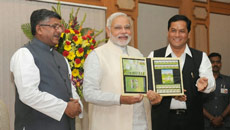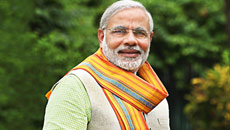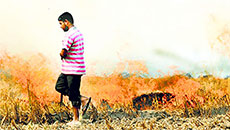The recent rise in temperatures is taking a toll on India's wheat production, an alarming study by geographers at the University of Southampton in Britain said.
A rise in night time temperatures is negatively affecting crop yield the most, the findings showed.
"Our findings highlight the vulnerability of India's wheat production system to temperature rise, which is predicted to continue in the coming decades as a consequence of climate change," said Jadu Dash, a lecturer in geography at the University of Southampton.
"We are sounding an early warning to the problem, which could have serious implications in the future and so needs further investigation," Dash added.
The researchers used satellite images taken at weekly intervals from 2002 to 2007 of the wheat growing seasons to measure "vegetation greenness" of the crop -- acting as an indicator of crop yield.
The satellite imagery, of the northwest Indo-Gangetic plains, was taken at a resolution of 500m sq -- high enough to capture variations in local agricultural practices.
The data was then compared with climate and temperature information for the area to examine the affect on growth and development of the crop.
Warmer temperatures during the reproductive and grain-filling (ripening) periods had a significant negative impact on productivity and warmer minimum daily temperatures (night time temperatures) had the most significant impact on yield, the study said.
In some areas of the Indian wheat belt, growers have been bringing forward their growing season in order to align the most sensitive point of the crop growth cycle with a cooler period.
However, the researchers showed that in the long-term, this would not be an effective way of combating the problem, because of the high level of average temperature rise predicted for the future.
The study was published in the journal Global Change Biology.




